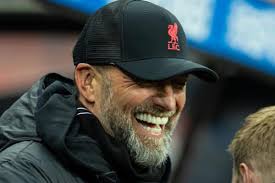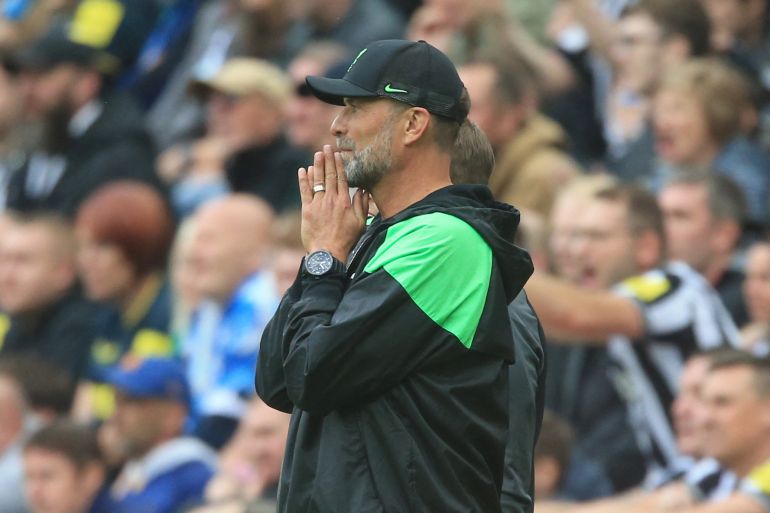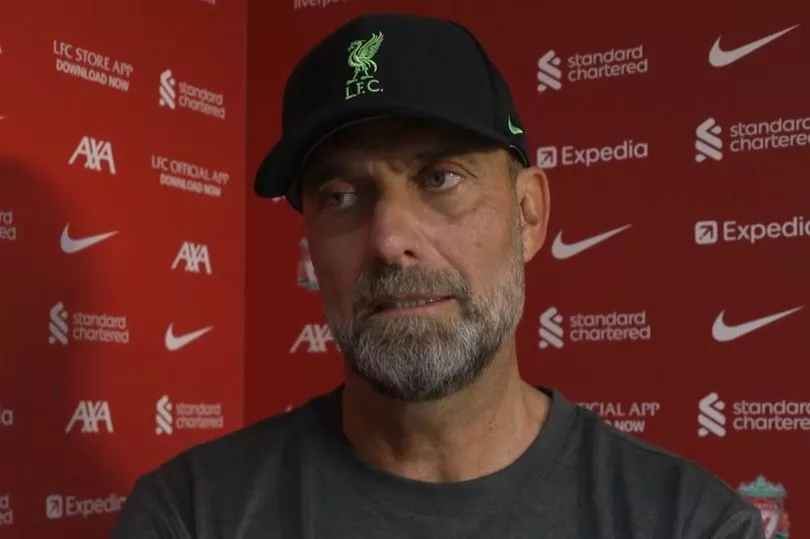Liverpool will continue to stay ahead of Manchester United in terms of facilities, recruitment and overall financial health following major developments surrounding a possible sale of the club

On Saturday evening it was announced that Qatari banker Sheikh Jassim had withdrawn from the bid for Manchester United, Liverpool’s main rivals.
It had already seen a $6.1bn (£5.0bn/€5.8bn) bid rejected and negotiations have now completely broken down.
The Glazer family, which has owned United since 2005, announced last November that it was considering a sale, but it now appears more likely that it will only part with a minority stake.
British businessman Jim Ratcliffe, owner of French club Nice, could be given free rein over a deal after a long-running dispute with Sheikh Jassim (via BBC Sport).
Many United supporters have expressed their opposition to Glazer’s regime, both through social media and through protests around Old Trafford, but Saturday’s developments appear to indicate that such opposition will remain for some time to come. Here,
Liverpool.com examines the Reds’ quadruple advantage over Erik ten Hag’s side in light of the news.
Transfers — Sheikh Jassim planned to invest $1.7 billion in the club, and a significant portion of that money would inevitably be used to sign new players.
The reality, however, is that United have already spent more than $1.8 billion since Sir Alex Ferguson retired in 2013, and are already among the best clubs in the world in terms of spending power.
However, a regime change would likely have meant a structural change, which is what United really need to compete.
Indeed, the company’s poor trophy haul over the past decade – two League Cups, an FA Cup and a Europa League – is testament to the continuing dysfunction of its recruitment operations.
Liverpool had and should have a clear advantage in this regard, having won La Liga and the Champions League in the same period despite spending around $600 million less.
Stadium – Sheikh Jassim also planned to invest in Old Trafford, a stadium in dire need of renovation.
It was even removed from the list of Euro 2028 venues in the UK and Ireland pending possible redevelopment work.
Club legend Gary Neville, a vocal critic of the Glazers, has accused the Americans of a “dereliction of duty” after allowing “one of the best stadiums in the world” to “rust” (via the MEN).
Indeed, the Daily Mail has reported that the roof at Sir Bobby Charlton is leaking, but the club is reluctant to replace it until the ownership situation is clarified.
It remains to be seen whether the Glazers can finally pump some money into Old Trafford, but they are years behind FSG, who took Anfield’s capacity from 44,000 to 61,000 in eight years by expanding the main stand and Anfield.
End of the road, and also the stadium significantly modernized (or at least it will have been once the latest delays have been overcome).
Liverpool’s arch-rivals Manchester United will not be sold to Qatar’s Sheikh Jassim
Training ground — As with Old Trafford, the Glazers have been accused of allowing the club’s Carrington training complex to become obsolete.
Former manager Ole Gunnar Solskjær says this has been “overlooked” and urged United to “catch up with other teams” (via The Athletic).
One such team is undoubtedly Liverpool, who opened a new $61m (£50m/€58m) training ground in Kirkby in 2020.
Jürgen Klopp was delighted with the new state-of-the-art base, calling it “pretty perfect” and adding:
“You have everything you need for now and for the future” (via liverpoolfc.com). Again, this was a priority for Sheik Jassim, but it certainly doesn’t seem to be the priority for the Glazers.
Debt – March figures showed United’s debt stood at $1.2bn (£970m/€1bn), but Sheikh Jassim had planned from the start to pay it off as part of of his takeover project.
Liverpool’s exact finances are not known, but its debts are several times lower than those of its Premier League nemesis: before buying Melwood and signing four new players this summer, it had $182 million/$150 million of pounds sterling/173 million euros (according to The Guardian).
Even then, the Reds have already struck a deal to resolve the issue, with FSG selling a minority stake to US investment firm Dynasty Equity.
The proceeds will be used to repay creditors and therefore improve the overall financial health of the club.
United began exploring a fire sale last November, and it was around the same time as John Henry and co. began to evaluate the market.
One process was much quieter than the other and resulted in a quicker resolution.


